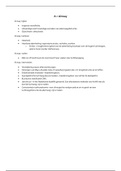BSc Psychology Year 1 The Social and Cultural Individual
1.1 HISTORICAL EXPLANATIONS AND APPROACHES TO STUDY
HUMAN SOCIAL BEHAVIOUR
WHAT IS SOCIAL PSYCHOLOGY
“Social psychology is the scientific attempt to explain how the thoughts, feelings, and
behaviours of individuals are influenced by the actual, imagined, or implied presence of
other human beings” (Allport, 1954)
Actual Presence
• Le Bon (1895) says that as part of a crowd, one often loses their sense of self and rationality
o He argued that people become submerged in ‘the collective mind’ and are driven more by
emotions than reason
o He argued that crowds were impulsive, prone to extremes and easily swayed by
charismatic personalities
• Triplett (1898) introduced the field of social facilitation and found that the presence of others
increases performance and the level of effort
Imagined/Implied Presence
• Fridlund (1991) found that participants smiled just as much when watching a video alone and having
their friend watching the same video in another room (implied presence) as when both were in the
same room together
o Participants also smiled more in these conditions than when watching completely alone
• Fridlund called this psychological presence of others
o Suggests that others can have an impact on our behaviour even when they are not present
HISTORICAL EXPLANATIONS
Instinct-Based View of Human Behaviour
• Herbert Spencer extended Darwin’s theory of evolution using a more psychological perspective
o He suggested that properties of the mind that produce social behaviour are inherited
through a process of evolution
• McDougall (1908) published the first Social Psychology textbook, which proposed that for humans,
most behaviour is instinctively determined
o He believed that studying the individual was the key to understanding society
Sociological Understanding
• Edward Ross placed a greater understanding of the influence of social forces and social institutions
on human behaviour
• He highlighted how social norms, collective behaviour and cultural contexts shape the individual as
much as or more than internal drives and instincts
Psychoanalytic Theory
• Freud (1920/1961) claimed that human behaviour is primarily due to aggressive and sexual drives
o Aggressive behaviour is critical for warding off predators and effectively competing for
scarce resources
1
,4PAHPSOP Psychology and Society Week 1
BSc Psychology Year 1 The Social and Cultural Individual
o Sexual behaviour is critical for reproducing and continuing genes
• However, unrestrained aggression and sexuality undermine social cooperation, so they are kept
unconscious by repression to consciously express themselves in a socially acceptable way
• Freud believed that a substantial part of human mental activity is unconscious
Behaviourism
• Focuses on understanding how social stimuli such as the presence of others or environmental cues
could shape individual behaviour
o However, it was very reductionist and overlooked the complexity of other things, such as
cognitive processes and the broader social context
• Watson (1930) argued that psychology should only focus on overt behaviour as it can be directly
observed and measured
• Behaviourists believe that feelings and unconscious processes are unobservable fictions and only
invented to explain behaviour
o They proposed that instincts and most human behaviour are likely learned rather than
innate due to the demands of the environment
• Its emphasis on observable behaviour provided a clear and systematic scientific approach to
studying human beings within psychology
MODERN SOCIAL PSYCHOLOGY
• The emergence of modern social psychology began with two books in the 1920s
o There became a consensus about making social psychology more about the individual
• They stressed the fundamental role of culture in determining human activities
o John Dewey (1922) believed both instinct (nature) and experience (nurture), and the
interaction between the two determine human behaviour, and by recognising both
unconscious and conscious processes, humans could have more control over their future
o Floyd Allport (1924) aimed to integrate consciousness, behaviourism, psychoanalysis and
evolutionary theory, promoting constructive individual and social change
• After World War II, social psychologists were motivated to understand and explain the events that
occurred, such as the Holocaust
o Milgram (1971) and Zimbardo (1974) displayed this power of obedience with their seminal
research on the power of the social situation in shaping human behaviour
• In the 1970s and 80s, social psychology shifted to understanding the mental processes that
underlie behaviour and has now expanded to include the neural foundations of thought and emotion
• Social media has also introduced new questions, such as its role in the process of radicalisation,
extremist ideology, body image and self-esteem
Psychology - Focusing on the Individual
• Traditionally, psychology focuses on the individual as it allows researchers to apply scientific
methods and control variables in experiments that would have been difficult with larger social units
Indivisibility
• The idea that the individual is indivisible, the idea that an individual cannot be broken down into
smaller units, has been central to the field's development as a scientific discipline
o Treating the individual as the primary unit of analysis has helped psychology distinguish
itself more credibly as a scientific field
2
,4PAHPSOP Psychology and Society Week 1
BSc Psychology Year 1 The Social and Cultural Individual
Oversimplification
• By focusing on the individual, this has also led to an oversimplification of social phenomena
• At times, it has been forgotten that the individual is impacted by their own world
o Therefore, this pointed towards the need to achieve a balance between understanding the
individual and recognising the broader social forces at play
Social Psychology - Embedded Individuals
• Social psychology emphasises the relationality and embeddedness of the individual, rather than
indivisibility
• Our beliefs and behaviours aren’t just individual choices but products of our embeddedness in the
complex social world
o An individual’s beliefs and behaviours are moulded by the web of social connections that
surrounds a person, and this is part of a network of countless interconnecting webs
• This challenges the notion of indivisible individuals as we are not self-contained units and don’t
make entirely independent decisions
A Web of Social Connections
• Our closest connections, friends and family shape our fundamental beliefs and behaviours
• Cultural traditions and social norms also play a role in shaping an individual
• Social norms dictate and determine what we consider to be acceptable and not
• More socially constructed things are also involved, such as institutions and laws, influencing our
beliefs about what is right and wrong
• Every social connection also affects who we are and how we act
Psychological and Sociological Social Psychology
• Sheldon attempted to distinguish between psychological and sociological social psychology
• Psychological social psychology is primarily concerned with psychological processes of individuals
o Focuses on how social stimuli, such as groups, norms, group pressures and interpersonal
relationships, affect an individual’s thoughts, emotions and behaviours
o It views an individual as the central unit of analysis, while social factors are considered
external influences that shape outcomes
• Sociological social psychology focuses on the reciprocity between society and the individual
o It considers the individual and society as an inseparable whole
o The primary concern is understanding the interaction and dynamic interplay between
individuals and the broader social structures in which they are embedded
3
, 4PAHPSOP Psychology and Society Week 1
BSc Psychology Year 1 The Social and Cultural Individual
FIVE PERSPECTIVES ON HUMAN BEHAVIOUR
The Social-Cognitive Perspective
• Aims to understand how people perceive, remember, and interpret events and individuals in their
social world, including themselves
The Evolutionary Perspective
• Aims to view humans as a species of animal and their social behaviour as a result of the same laws
and evolutionary processes as all other species
The Cultural Perspective
• Emphasises the central role of culture in human thought, feeling and behaviour
• Unlike other animals, humans have created their own symbolic notion of reality, and this has given
meaning to life
The Existential Perspective
• Examines basic questions about existence and human nature, such as meaning, identity, the body,
and free will
• Attention is given to understanding the basic nature of the self, authenticity, and the core human
motives: the needs for meaning, social connections, and how people cope with the possibilities of
trauma and loss, as well as the inevitability of death
• This is an increasingly popular perspective taken by social psychologists
The Social Neuroscience Perspective
• Study brain activity to examine neural processes underlying social judgment and behaviour.
• This can enhance knowledge of various cognitive, emotional, and motivational processes in social
phenomena
• Gaining momentum with technological advances which helps us understand what is going on inside
the brain
4




